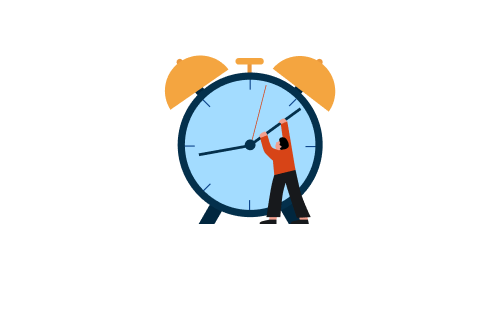How Lowcountry Legal Volunteers is Closing the Access to Justice Gap by Maximizing its Budget with Clio for Legal Aid
Download This Article as a PDFInstantly download this article as a PDF
Download this article!

Lowcountry Legal Volunteers
-
1998
Year Founded
-
5
Number of Staff
-
2024
Started Using Clio
-
Okatie, SC, USA
Location
-
Legal Aid
Fee Types
-
Estate Planning
Family
Housing Protection
Landlord/Tenant Rights
Practice Areas
Impact of Using Clio
Using Clio for Legal Aid, the Lowcountry Legal Volunteers team is now able to accurately and conveniently pull up key information and track their results.
-

Increased clients ease of access to the organization
-

Decreased time spent on gathering information for grant reports
-

Increased visibility to the amount of need for legal services in the community
How Clio Helped
Top Ways Clio for Legal Aid Has Positively Impacted their Workflows
Clio for Legal Aid is Clio’s practice management software—but optimized for nonprofit, legal aid, and legal service organizations like Lowcountry Legal Volunteers.
With the guidance of a Certified Clio Consultant, Anne and the team at Lowcountry Legal Volunteers use Clio for Legal Aid to efficiently manage grant information, enable easier client access, and more.
“It’s been a game changer already. I knew that Clio for Legal Aid would be a game changer for Lowcountry Legal Volunteers;, I just didn’t know in how many ways it would be a game changer.”
Some of the key ways that Lowcountry Legal Volunteers uses Clio for Legal Aid include:
Managing grants and funding and tracking resources in one centralized space
Before adopting Clio for Legal Aid, the organization struggled with inconsistent data input processes that made navigating data challenging. Now, the team has a consistent data input process and database, which means they can quickly find exactly what they need. This is particularly useful when managing grants and grantors.
“Clio for Legal Aid is great because we rely heavily on grant support,” Anne explains. “So if our grantor needs to know how many clients we’ve served in a certain zip code in a certain time period, we can pull that information up for them.”
“Before, getting grant reports together for our grantors used to be a nightmare. I would have to rely heavily on our bilingual paralegal to spend hours upon hours gathering that information from a Google spreadsheet. Clio for Legal Aid [has] made a night-and-day difference for us. We can now provide accurate information on how we’re doing and how efficient we’re being for our clients, as well as letting our grantors know, ‘Hey, we appreciate you, and here’s what your funding is doing for us.’”
The ease of having consistent data also goes a long way in time savings for the organization—which, in turn, frees up more time to spend on client service.
Improving client access to services
The more convenient it is for people to reach Lowcountry Legal Volunteers, the more people the organization can help. Clio for Legal Aid makes it easier for clients to find the organization.
“So far, what we’ve seen is that it makes it easy for our clients to access us. They can access us night or day. They can apply online at our website, and it’s linked directly to Clio for Legal Aid, so they can do it whenever they have time,” Anne says.
Beyond just making it easier for clients to reach the organization, Clio for Legal Aid also makes it easier for lawyers to assess a potential client’s eligibility.
“Clio for Legal Aid has been super helpful, with our consultant helping customize our Clio for Legal Aid services so we are able to request specific income information from our clients. So, for me as the attorney and the other two attorneys that work at Lowcountry Legal Volunteers, we are able to easily assess whether that person qualifies on an income basis.”
“If they don’t qualify on an income basis, then we’re easily able to refer them to our referral partners so they can still get the help that they need.”
Raising the visibility of the level of client need
For Anne, the level of data that Clio for Legal Aid provides has been eye-opening.
“I was actually shocked with the data we were able to capture of all the people that had reached out to us and applied for services that we were never able to capture before Clio for Legal Aid. For example, our consultant, Dawn, pointed out to me that in the first month of using Clio for Legal Aid, we had 196 people reaching out for legal services.”
Helping close the access to justice gap in the community
“Clio for Legal Aid really helps us, pretty much in real-time, to assess our efficiency in providing access to legal justice,” Anne says.
“Essentially, Lowcountry Legal Volunteers has been using Clio for Legal Aid to help people access our services. That’s the hardest part: We’re here to serve people and provide free legal services but it’s hard for some people to get through the front door to us, or even to know about us.
“But now that we’re using Clio for Legal Aid they’re able to apply online and they’re able to communicate easily with us. And we need documentation. We’re able to send, or request that documentation, in a friendly, easy manner for them to be able to respond to. It’s really helped the process run more smoothly for our clients and for us.”
“At the end of the day, we’re going to be able to serve more people.”
Anne provides an example of how using Clio for Legal Aid has helped the team assist a client who may not otherwise have reached them.
Helping the team make educated decisions for the organization
The Clio for Legal Aid dashboard has also been a valuable tool for Anne, as it provides important data quickly—allowing her to make educated, data-driven decisions.
“The Clio for Legal Aid dashboard is great for me personally. It’s great to be able to look at a moment’s notice and say, ‘Okay, who do we have in the pipeline? Who do I need to review before we schedule the next steps?’
Other Benefits of Clio
The guidance of a Clio Certified Consultant
When implementing Clio for Legal Aid, Anne and the Lowcountry Legal Volunteers team also partnered with their Clio Certified Consultant, Dawn Douthat at 1=3 Consulting. For Anne, Dawn’s guidance has been key in helping the team learn how to use Clio for Legal Aid to its full potential for the organization.
“Dawn, our consultant for Clio for Legal Aid, is gold, and she’s gold as a volunteer as well. I can’t give her enough shoutouts on that.”
What’s next
Looking forward, Anne sees even more ways that her team can use Clio for Legal Aid to help more people in need.
“We can see in the future utilizing Clio’s tracking features for our volunteer hours and the value of those hours,” Anne says. “I think at some point it’s going to be critical to track the value of services we provide.
“Last year we provided the value of $2.75 million back to our local community in free legal services. But I think if we start using Clio for Legal Aid for that, we’ll be able to track even more of the benefits, and that number will most likely go up in value.”
Ultimately, Anne is already proud of how Lowcountry Legal Volunteers help clients access justice today, and excited about the future.
Clio Products Used
Clio for Legal Aid
Manage and report on every aspect of your grants, from eligibility screening to case resolution, all from within the leading case management software. Learn more.